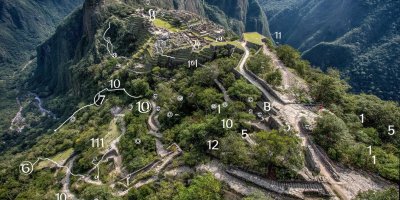
Sustainable Tourism at Machu Picchu 2025: Responsible Travel Guide and Conservation Tips
Complete guide to sustainable tourism at Machu Picchu. Responsible travel practices, conservation efforts, community support, and eco-friendly travel tips.
Found 6 results related to this question
Our monitoring service tracks ticket cancellations and new releases 24/7. Get notified instantly when tickets for your preferred dates become available.
Machu Picchu, a UNESCO World Heritage Site, is not just a breathtaking archaeological marvel; it is also a living testament to the traditional knowledge of the Andean people. As tourism flourishes in this iconic destination, efforts are being made to preserve the indigenous culture and ancestral practices that define the region. Local communities are engaged in sustainable tourism practices that not only benefit the economy but also honor their heritage.
The Quechua language, still spoken by many locals, is often shared with visitors through guided tours and cultural workshops. Tourists can participate in traditional ceremonies, such as pachamanca, where food is cooked underground, allowing for a deep connection to the land and its customs.
To further enhance the preservation of traditional knowledge, many local artisans sell handicrafts made from natural materials, such as textiles and pottery. These crafts reflect ancient techniques passed down through generations and are available for purchase at markets in Cusco and the Sacred Valley.
Moreover, local guides play a crucial role in sharing their ancestral wisdom about the flora and fauna of the region, explaining the medicinal properties of various plants. Tourists are encouraged to engage with their guides, asking questions to learn about the cultural significance of places like the Temple of the Sun and the Intihuatana stone.
Travelers should be mindful of their impact on the site and adhere to sustainable practices, such as staying on designated trails and respecting sacred areas. Participating in community-led tours can deepen the understanding of how traditional knowledge is intertwined with the preservation of Machu Picchu.
For a more immersive experience, consider visiting during local festivals, where traditional music, dance, and culinary experiences bring the culture to life. Be sure to sample local dishes like cuy chactado and quinua to truly appreciate the region’s heritage.
Remember, by supporting local businesses and respecting cultural traditions, tourists can help ensure that the rich tapestry of traditional knowledge at Machu Picchu endures for future generations.

Complete guide to sustainable tourism at Machu Picchu. Responsible travel practices, conservation efforts, community support, and eco-friendly travel tips.

Weighing up whether to hike Huayna Picchu or Machu Picchu Mountain? This guide compares distances, elevation, difficulty, permits, highlights and tips for both iconic climbs.

Explore everything you need to know about Machu Picchu, from its 15th‑century Inca origins and sacred temples to trekking routes, ticket tips and sustainable travel advice.

Complete guide to Machu Picchu's 4 circuits. Learn which route offers the best views, photo opportunities, and experiences for your visit.

Complete seasonal weather guide for Machu Picchu. Monthly climate data, packing lists, and optimal timing for different travel experiences.

Complete guide to getting student discounts at Machu Picchu. Learn eligibility requirements, documentation needed, and how to save up to 50% on tickets.
Set up instant alerts for ticket availability and never miss your chance to visit Machu Picchu.
Get Alerts